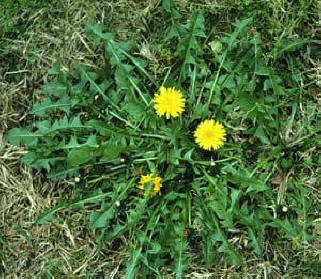 (5/9) Most people spend a lot of time weeding their gardens and often get discouraged about gardening in general because of the persistent weeds. There is no way to avoid weeding entirely, but here are eight steps you can take to lessen the chore considerably.
(5/9) Most people spend a lot of time weeding their gardens and often get discouraged about gardening in general because of the persistent weeds. There is no way to avoid weeding entirely, but here are eight steps you can take to lessen the chore considerably.
1. Avoid turning over the soil
Every time you turn over a shovel full of soil, you expose hundreds of weed seeds that have been patiently waiting for the sunlight they need to germinate. It's not as necessary as you think to dig up and work your soil -- even for vegetables. Try spreading either compost or a mixture of mulched leaves and grass on your garden in the fall. Then in
the spring, plant your vegetable seeds right in that top dressing. For some new ideas on this topic, go to emmitsburg.net/The Master Gardens. Click on Articles by Author and check out fellow Master Gardener Mary Ellen Banks' article, Papering your garden.
2. Mulch
Two to four inches of mulch keeps your plant roots cool in summer and helps your soil retain moisture. It also shades the soil between the plants preventing many seeds from germinating.
3. Use a pre-emergent
Weed seeds blow in on the breeze or are deposited by birds onto your mulch. If you have scattered a pre-emergent over the mulch, it will prevent those seeds from germinating. A popular pre-emergent, trifluralin, commonly sold under the brand name Preen, will prevent germination for three months. You must water it in well as soon as you apply it or
apply it just before a nice rain. Be sure not to apply it where you plan to plant seeds or where you want self-sowers to come up. Trifluralin is a chemical. It is toxic to aquatic life and can be harmful to children or pets if eaten or touched. An organic alternative for trifluralin is corn gluten, which is also commonly sold by the same company. Corn gluten will not harm
pets or children. It is high in nitrogen, and is an excellent fertilizer for the lawn and garden. Unlike trifluralin, you put it on dry. Be sure to read carefully and follow instructions exactly to reap weed control benefits.
4. Improve your soil
Some weeds actually grow better in compacted soil, but your garden plants don't. Organic matter allows their roots to be much healthier. Large, healthy plants will naturally crowd out the weeds. Learn to make compost and use it liberally as a top dressing. With good organic soil, any weeds you get will be easier to pull.
 5. Pull weeds when they are tiny
5. Pull weeds when they are tiny
It's so much easier and quicker to get rid of weeds when they are babies. Don't wait until they become full-grown monsters. Take a walk around your garden every day to visit and enjoy your plants. Carry a bucket. If you see a weed, pull it out and drop it into the pail. George Weigel, my favorite garden writer, calls this Compost harvesting. Drop
the young weeds into your compost to return those stolen nutrients back to your soil. Never let a weed go to seed. Once you have a seed head, you have hundreds of weeds instead of one.
6. Pull weeds after a good rain
Take hold of the weed just below the soil line. Pull slowly and evenly. Feel the roots release from the soil. It's such a satisfying feeling!
7. When necessary, use a weed-killer
The worst surfaces you can choose for your hard scrapes are cement and macadam because water will run right off of them and not seep through them. Choosing surfaces such as gravel, brick, pavers and some of the new permeable surfaces now on the market are much better ecological choices. The problem is the weed seeds will germinate in the gravel or
in the cracks between the pavers and can sometimes be next to impossible to pull. Try taking a tea kettle of boiling water and pouring it over young weeds. It works surprisingly well.
For the stubborn ones, it sometimes becomes necessary to resort to a weed killer. The most well-known is glyphosate, commonly sold as Round-Up. Round-Up kills every plant it touches, so be very careful. Use it exceedingly sparingly. Sometimes wiping it on or painting it on with a brush will work better than spraying. It may be your only option for
poison ivy. A newer product called Burn Out has now been introduced which is approved for organic gardening. It claims to kill weeds as effectively as Round-Up, but in a safer manner. Might be worth a try.
8. Avoid overhead watering
Using an overhead sprinkler not only invites disease, but also waters the weeds and adds the moisture their seeds need to sprout. Watering the soil directly beneath the plant, or using a soaker hose is a much better solution.
Read other articles on lawn care & weed control